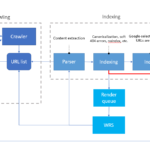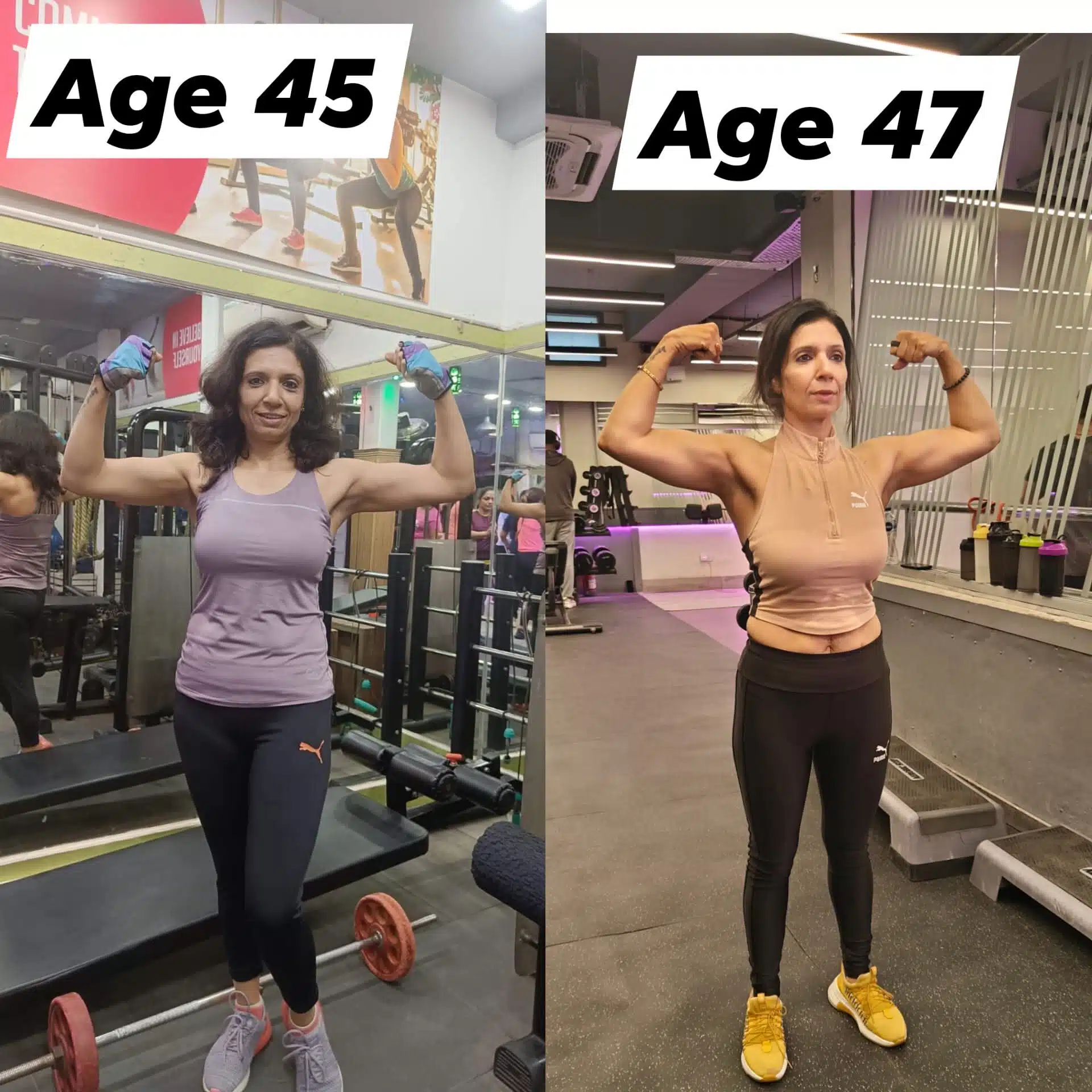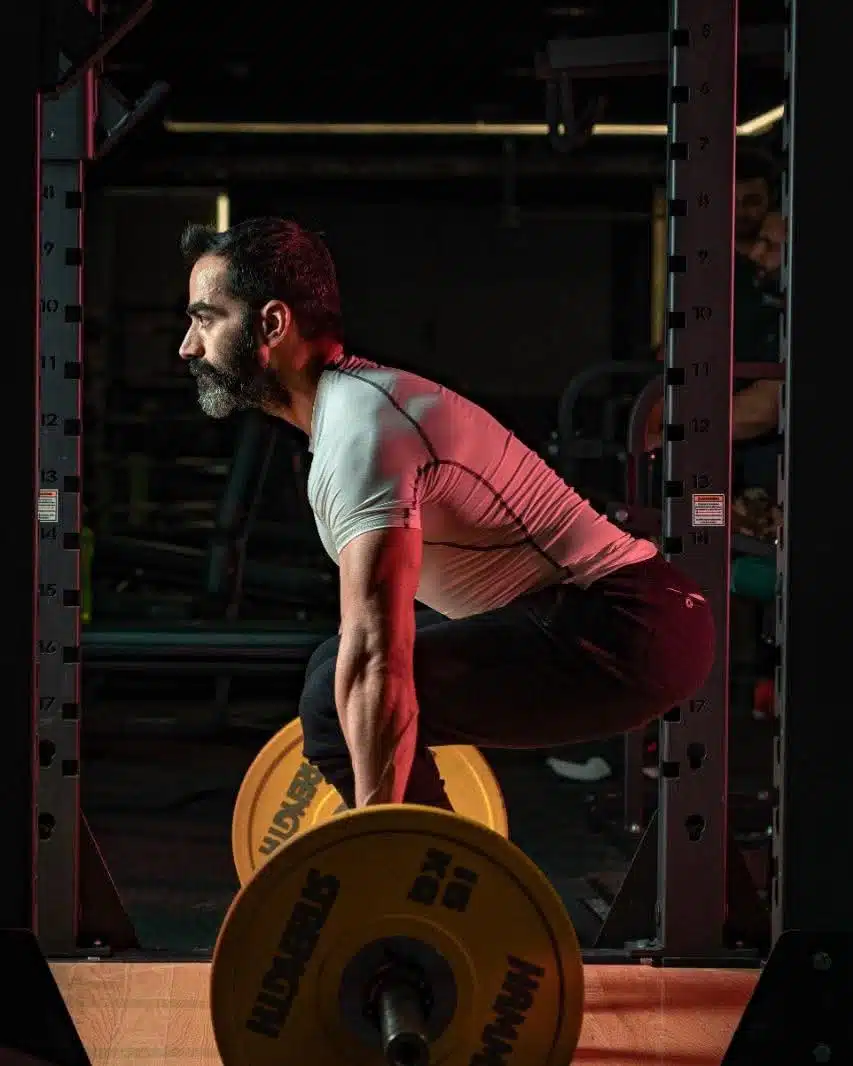Weight Training for Healthy Aging: The Key to Strength, Longevity, and Independence
By Sushma Pachauri, Fittr Coach
Aging is inevitable, but frailty and dependency don’t have to be. Science-backed research and real-life success stories prove that weight training is one of the most powerful tools to maintain health, strength, and mobility as we age. It’s not just for bodybuilders or the young—it’s for anyone who wants to live actively and independently in their 50s, 60s, 70s, and beyond.
Let’s explore why strength training after 40 or 50 is a game-changer, what benefits it brings, and how to practice it safely.
What Is Sarcopenia and Why Should You Care?
Age-Related Muscle Loss
One of the lesser-known effects of aging is sarcopenia, a condition characterized by a gradual loss of muscle mass and function. Starting as early as our 30s, we can lose 3%–8% of muscle mass per decade, and this rate increases after the age of 60.
Without intervention, sarcopenia can lead to:
- Muscle weakness
- Poor coordination
- Increased risk of falls and fractures
- Difficulty in performing daily tasks
This decline impacts independence and quality of life—but the good news is, weight training directly combats this process.
Why Weight Training Is Crucial for Older Adults
1. Rebuilds Muscle Mass and Increases Strength
Muscles are like engines for your body. As you age, you need them not just for lifting heavy objects, but for performing everyday movements like:
- Standing up from a chair
- Carrying bags
- Getting into and out of vehicles
- Climbing stairs without assistance
Weight training stimulates muscle protein synthesis, helping you rebuild lost muscle and preserve existing mass, even in your 70s and 80s.
📌 Study Spotlight: A study published in Age and Ageing found that progressive resistance training in older adults significantly improved muscle strength and physical performance.
2. Improves Bone Density and Fights Osteoporosis
With age, bone density decreases, especially in postmenopausal women, leading to osteoporosis and a higher risk of fractures.
Strength training puts controlled stress on bones, encouraging them to remodel and become denser. This is essential in preventing:
- Spinal fractures
- Hip fractures
- Loss of height due to vertebral compression
🦴 Real-world benefit: A consistent weight training program can reduce the risk of hip fracture by over 40%, according to the National Osteoporosis Foundation.
3. Reduces Joint Pain and Supports Joint Health
Chronic joint pain, particularly due to osteoarthritis, is a common concern in aging. Contrary to the myth, lifting weights doesn’t worsen joint pain—it helps reduce it by strengthening the muscles that support the joints.
Weight training can help by:
- Reducing mechanical stress on joints
- Enhancing flexibility and range of motion
- Improving posture and movement patterns
✅ Important Note: Always use controlled movements and avoid high-impact exercises in case of joint issues. Resistance bands or machines can be great low-impact alternatives.
4. Enhances Metabolism and Controls Weight
Muscle is metabolically active tissue. That means the more muscle you have, the more calories you burn—even at rest.
This is crucial because:
- Basal Metabolic Rate (BMR) naturally decreases with age
- Reduced physical activity often leads to weight gain, especially visceral fat
- Higher fat percentage increases the risk of diabetes, heart disease, and cancer
Strength training keeps your metabolism active, aids in weight maintenance, and improves insulin sensitivity, reducing the risk of chronic diseases.
5. Boosts Mental Health and Brain Function
Exercise, particularly resistance training, plays a significant role in maintaining mental health and cognitive sharpness in older age. It helps by:
- Increasing the release of endorphins and serotonin (feel-good hormones)
- Reducing depression, anxiety, and mood swings
- Improving memory, focus, and learning capacity
- Slowing the progression of age-related cognitive decline and dementia
🧠 Brain Boosting Bonus: A 2020 study in the Journal of Alzheimer’s Disease showed that strength training twice a week improved memory and executive function in older adults with mild cognitive impairment.
How to Get Started: Weight Training Tips for Older Adults
✅ Tip 1: Start Light, Master the Basics
Use light weights or resistance bands to begin. Focus on:
- Perfect form to avoid injury
- Slow, controlled repetitions
- Compound exercises like squats, push-ups (wall or knee-supported), and rows
✅ Tip 2: Work with a Certified Coach or Therapist
Get personalized guidance to:
- Avoid injuries
- Modify movements for any limitations or medical conditions
- Build a progressive plan that suits your goals
✅ Tip 3: Allow Recovery and Rest
Recovery is crucial. Include:
- 48 hours rest between strength sessions for the same muscle group
- Hydration and proper sleep
- A nutrition plan rich in protein, vitamins, and minerals
✅ Tip 4: Complement with Functional Exercises
Mix strength training with:
- Walking or cycling for cardiovascular health
- Stretching or yoga for flexibility
- Balance drills like standing on one foot or heel-to-toe walking
Conclusion: It’s Never Too Late to Start Building Strength
Age is not a limitation—it’s a reason to prioritize strength. Whether you’re 50 or 80, resistance training can help you:
- Stay active
- Maintain independence
- Prevent chronic illness
- Enjoy life to the fullest
Even two 30-minute sessions a week can dramatically improve your strength, mobility, and confidence.
So, if you’re wondering whether it’s too late to start lifting weights—the answer is a resounding NO. Start small, stay consistent, and feel the transformation from within.
Author Bio:
Sushma Pachauri is a certified Fittr Coach with expertise in strength training, functional fitness, and healthy aging. She helps individuals of all ages, especially middle-aged and older adults, regain strength, confidence, and vitality through science-based fitness programs.
SEO Keywords:
weight training for seniors, strength training after 50, sarcopenia prevention, best exercise for older adults, resistance training for aging, bone health exercise, muscle loss aging, fitness for elderly, weight training and mental health, metabolism after 50, how to start lifting weights in old age, weight training and osteoporosis, fitness tips for seniors.









